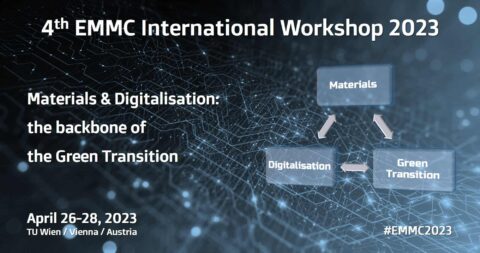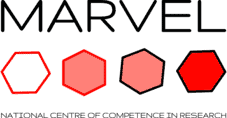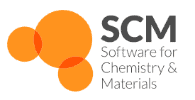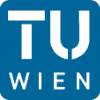Emanuele Ghedini (University of Bologna, IT)
EMMC 2023 – 4th EMMC International Workshop
EMMC 2023 – Materials & Digitalisation: the backbone of the Green Transition

The 4th EMMC International Workshop 2023 marks the anticipated return to an onsite event back in Vienna, Austria.
Around a hundred participants from 19 countries met at the TU Wien Main Building on Karlsplatz from 26 to 28 April to connect with each other and share experiences across disciplines. Preceded by successful workshops onsite in 2017 and 2019, and an online version in 2021 due to the pandemic, this year’s programme comprised inspiring talks, engaging discussions, international exhibitions, and exciting social events.
This year’s theme, Materials and Digitalisation: the Backbone of the Green Transition, assembled experts from RTD, industry, academia and policy. The outcome of the workshop will contribute to an updated EMMC Roadmap for Materials Modelling and Digitalisation of the Materials Sciences. The Roadmap identifies gaps and gives direction for achieving an agile European materials industry and maximising the impact of digital materials sciences based on the knowledge accumulated over years.
In addition to topics align with the five focus areas of the EMMC (Model Development, Digitalisation and Interoperability, Software, Impact on Industry and Policy) EMMC 2023 featured a session dedicated to the integration of modelling and characterisation. Participants discussed recent challenges and the need to accelerate materials design and optimisation to meet complex societal and industry demands. The importance of accessible tools, interoperability, and collaborations across communities, stakeholders and initiatives was stressed by several participants.
Sponsors









Plenary Talks
| Title | Speaker | Presentation |
|---|---|---|
|
Innovation in the Green & Digital transformation |
Luis de Prada (EUCAR, Belgium) | |
| Digital Twin in Metal Materials Manufacturing | Hermann Autenrieth (Robert Bosch GmbH, Germany) | |
| Computer-Accelerated Materials Design | Aron Walsh (Imperial College, United Kingdom) | |
| Green materials in less time: accelerated discovery with machine learning | Gareth Conduit (Intellegens, United Kingdom) | |
| nanoHUB services for FAIR simulations and data: ResultsDB and Sim2Ls | Alejandro Strachan (Purdue University, Network for Computational Nanotechnology, USA) | |
| EU Policy landscape in Materials & Digitalisation | Esther Hurtós (Eurecat, Spain) |
Session 1
Innovation facilitation in Ecosystems supporting the twin green & digital transition
The former Focus Area Impact in Industry had two precursor working groups (WG) of the EMMC, the WG Translation and Training and the WG Business Decision Support Systems. While Translation dealt with the transformation of industrial questions to modelling workflows, the BDSS concentrated on the “back-translation” of modelling results into the identification of actionable decisions of industrial decision makers by answering “what-if” questions. One basic idea of the Focus Area Impact in Industry had been to combine these two strands, to build upon the results of the precursors and advice coherent ways for co-creation of innovations by collaborations between industry and modellers, mediated by Translators.
However, new innovation paradigms, in particular open innovation processes, are nowadays heavily under discussion. Since in the end industry is responsible to deliver new products based on innovations in-line with the European headline ambitions, the notation of “impact of materials modelling” shall get extended towards “impact in ecosystems” since goals like sustainability, recyclability and others cannot be achieved by one industrial player alone. To unlock the full potential of materials modelling in open innovation processes and to consider how the ideas and results of the EU founded projects can be effectively used in the future, additional players, namely government bodies and society, should be included in the discussion. This aim triggered the re-naming of this Focus Area to “Impact in Ecosystems”.
The central questions to be answered in this session are: How may materials modelling generate impact in Open Innovation approaches, and which features of modelling tools will change the game in ecosystems in the near and long term from the perspective of identified innovation needs.
| Title | Speaker | Documentation |
|---|---|---|
|
Characterisation as accelerator of advanced modelling |
Nello Li Pira (CRF, Italy) | |
| How Digitalization enables sustainable business models for materials characterization and modeling services | Franz Pirker (AC2T research GmbH, AT) | |
| Meeting safe and sustainable by design materials and tools | Amaya Igartua (TEKNIKER, EUMAT, ES) | |
| Chair: Natalia Konchakova (Helmholtz-Zentrum hereon, DE) | Recording |
Session 2
Prediction or interpretation or speed-up or … – what makes materials modelling valuable?
Digitalisation has been at the heart of computer simulations of materials and molecules ever since such methods were invented more than half a century ago. But materials modelling can achieve so much more: prediction of new materials and functionalities, interpretation, characterization, speedup, “understanding”, …
In this session we will discuss the virtues and hurdles of materials modelling and its likely future impact in different application fields. How valuable are really all those capabilities listed above to industry and society? Will data-driven approaches rule, and physics-based rules decline? Is materials modelling results trusted today – by industry, by experimental academicians?
The session will focus on modelling at the electronic, atomistic and nano-scale levels but how to link them to the more macroscopic scales and to the real world is also central.
| Title | Speaker | Documentation |
|---|---|---|
|
Computational Chemistry: An Industrial Perspective |
Misbah Sarwar (Johnson Matthey, UK) | |
| Measure what’s easy to measure, calculate what’s easy to calculate, use AI to fill in gaps | Felix Hanke (Biovia R&D, Dassault Systems UK Limited , UK) | |
| Digitalization of materials processing: the case of battery manufacturing | Alejandro Franco (Université de Picardie Jules Verne, FR) | |
| Chair: Kersti Hermansson (Uppsala University, SE) | Recording |
Session 3
Materials Data Spaces, technologies and implementations
Within materials, a common digital ecosystem ensuring semantic interoperability between enabling technologies has been identified as one of the cornerstones for the Twin Green and Digital Transition. This includes formalisation the representation of data and knowledge in a machine-interpretable form.
The scope of this session is to bring key stakeholders (e.g., from EOSC, FDO Forum, PMD) together with EMMC ASBL to foster wider collaborations and ensure alignment of developments in the future. The impulse talks will make technology concrete, illustrating how practitioners can make use of digital technologies, recommended practices, and interoperability standards. In our discussions we will explore how to proceed from individual actions toward a more coherent and harmonised system.
| Title | Speaker | Documentation |
|---|---|---|
|
A technology stack for semantic interoperability |
Francesca Lønstad Bleken (SINTEF, NO) | |
| FAIR digital objects as a building block for digitalization technology stacks | Raul Palma (Poznan Supercomputing and Networking Center, PL) | |
| The Platform MaterialDigital (PMD) and the goal of a Materials Data Space | Tilmann Hickel (BAM, DE) | |
| Status of the EMMO development and its achievements |
|
|
| Chair: Anne de Baas (Goldbeck Consulting Ltd., UK) | Recording |
Session 4
Characterisation as accelerator on advanced physics-based modelling; from product development to Use-Cases
The Modelling and Characterisation session aims to shed light on current state-of-the-art developments in the field of integrated and validated characterisation and modelling suites for manufacturing.
This session will be led by EC-funded projects and end-users success stories that brought solutions to the European market from the product development phase to the final validation/application.
In addition, the session will include a plenary discussion on the challenges and opportunities arising in Mechanical modelling and demonstrators’ testing/validation, which is an important aspect of product performance assurance prior to entering the market.
This session will make clear how close we are and how we can overcome contradictory modelling/characterization outcomes, opening the path to new strategies for making the industry more resilient, saving resources ,and accelerate the time-to-market of end-products.
| Title | Speaker | Documentation |
|---|---|---|
|
Overview of the characterisation platform and challenges regarding the acceleration of characterisation data treatments |
Jessica Thery (CEA, FR) | |
| Interoperable Characterization Data for Battery Models and Gigafactories | Ferry Kienberger (Keysight Technologies, AT) | |
| Advanced Nanomechanical Testing for Accelerated Material Development | Verena Maier-Kiener (Montanuniversität Leoben, AT) | |
| Presentation by new Horizon Europe projects on “Advanced materials modelling and characterisation” |
D-STANDART (Vis Dhanisetty, NLR, NL) |
|
| Roundtable discussion on “Challenges and Opportunities in materials modelling and demonstrators’ testing/validation; how close we are to industrial needs and sustainable exploitation of modelling/characterization outcomes.” | D-STANDART (Vis Dhanisetty, NLR, NL) MatCHMaker (Ludovic Jason, CEA, FR) CoBRAIN (Markus Apel, Access Technology GmbH, DE) KNOWSKITE-X (Elise Berrier, UCCS University of Lille, FR) AddMorePower (Olivia Pfeiler, KAI GmbH, AT) Moderation: Franz Pirker (AC2T, i-Tribomat, AT) |
|
| Chair: Costas Charitidis (NTUA/RNanoLab, GR) | Recording |
Session 5
Software as part of the Knowledge Value Chain: From Thermodynamics EoS to AI driven ChemInformatics
The Software Focus Area aims at motivating, facilitating, and promoting the transfer of software for computational materials science into ready-to-use tools for industry and provides a forum for both software developers and users.
The session’s focus is on success stories (from academic and industrial R&D) that demonstrate the added value of Materials Modelling to industry and society (The Value of Materials Modelling), and on key factors and business models to foster industrialization and societal/environmental impact.
The speakers of this session will contribute to one or both topics from their background and expertise to give an overview of current developments as well as future perspectives.
All session speakers and attendees are invited to share their evolving requirements for materials modelling software. The EMMC2023 conference session aims to provide a collaboration space for R&D actors and users to engage in advancing materials modelling and application, exchanging best practices and sustainability strategies.
| Title | Speaker | Documentation |
|---|---|---|
|
Quantifying the performance of machine learning models in materials discovery |
Marco Musto (Citrine Informatics, US) | |
| The path from academic research to valued software for industrial use | Anders Engstroem (ThermoCalc, SE) | |
| Title tbc | Bijan Yadollahi (CMCL Innovations, UK) | |
| Software Business Models |
Ilian Todorov (UKRI – STFC, UK) and Stijn Donders (Siemens Digital Industries Software, BE) |
|
| Chair: Ilian Todorov (UKRI – STFC, UK) | Recording |
Session 6
European and national policy developments
The close link between societal challenges, as for example expressed in the Twin Green and Digital Transition, and the design, development, use and re-use of materials the topics of EMMC 2023 has been widely discussed. As expressed in the theme of EMMC 2023, materials and digitalisation are two core and closely interlinked aspects of the Green Transition and the EU Strategic Autonomy. Each on its own comes with big challenges such as how humanity uses and today often wastes materials resources, and how digital technologies can be utilised advantageously.
The need for uniting materials and digital competences and capabilities have been recognised in a wide range of policies and initiatives at national, European and international levels, in Europe most prominently by the Advanced Materials Initiative 2030.
This session will discuss the policy landscape from a European, national and international perspectives to highlight challenges, opportunities and required actions, contributing to an update of the EMMC Roadmap.
| Title | Speaker | Documentation |
|---|---|---|
|
Needs for future actions in advanced materials |
Jana Drbohlavova (EC DG Research & Innovation, BE) | |
| Research & Technology Infrastructures, Careers and Skills in the ERA Policy Agenda | Rene Martins (EC DG Research & Innovation, BE) | |
| R&D on Materials Modelling in BMK | Alexander Pogány (Federal Ministry Republic of Austria, AT) | |
| Overview of Advanced Materials Initiative AMI2030 | Philippe Jacques (EMIRI, BE) | |
| Materials Digitalisation: EMMC Roadmap and AMI2030 | Gerhard Goldbeck (EMMC, BE) | |
| Chair: Anne de Baas (Consultant, BE) | Recording |